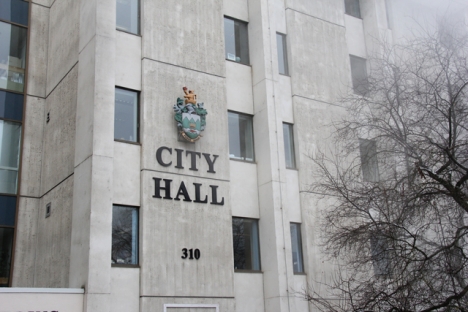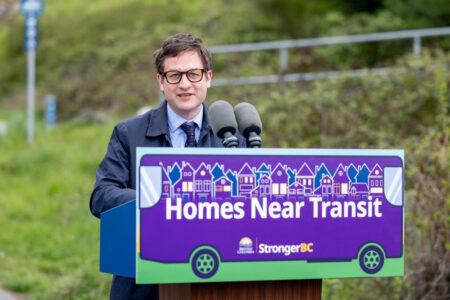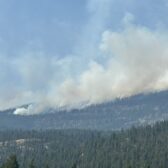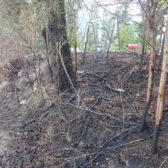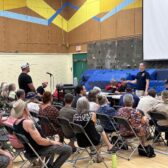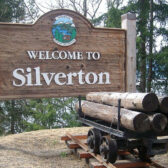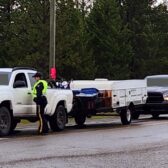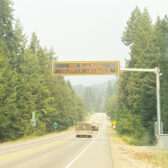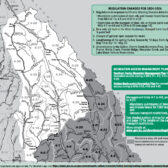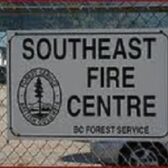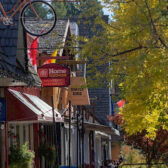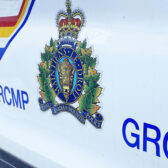City finally develops aboriginal protocol after years of debate
It has been several years in the making, but the city has finally adopted an aboriginal protocol.
Recently, city council approved a new policy to consistently convey recognition and respect in acknowledging indigenous peoples on behalf of the City of Nelson at public meetings and events.
Eight First Nations and reams of administrative protocol were finally distilled into two lines and a general acknowledgement of all indigenous peoples.
The protocol — to be read by members of council when attending City of Nelson events and meetings — reads:
“The City of Nelson acknowledges all Indigenous peoples on whose traditional territories we stand. We honour their connection to the land and rivers and respect the importance of the environment to our strength as a community.”
The City of Nelson recognizes that indigenous peoples traditionally lived and passed through the Kootenay territory and is mindful of their historic connection to the lands in this region, said city manager Kevin Cormack in his report to council.
He explained the provincial requirement for local governments is to consult with all indigenous peoples holding an interest in territorial and regional lands when considering Official Community Plan amendments.
He noted that the province’s list currently contains eight nations — including Yaqan Nukiy/Ktunaxa and the Sinixt/Arrow Lakes First People — the city would be required to consult in the region. Such a list made it problematic for years for council to implement municipal policy contrary to provincial regulations.
Coun. Bob Adams helped narrow the choice of eight nations to aboriginal peoples.
“I thought the (final development) of the protocol was good,” he said.
The impetus for the protocol was to create public recognition of indigenous peoples, promoting “healthy intergovernmental relations while fostering cooperative and respectful relationships in the region.”
The idea of an aboriginal protocol and the creation of a policy that formally acknowledged Indigenous peoples in the Kootenay region began some years ago.
The intent in creating policy had “mindful respect and recognition of the historic connection indigenous peoples have long held with the land in the Kootenay territory” at its heart.
The scope-of-policy work first undertaken by staff included formal administrative protocols, which meant the development of the policy was delayed for years while the language was clarified.
In 2015 the city’s Cultural Development Committee added the development of an aboriginal protocol for the City of Nelson to its 2015-2018 action plan and started to explore appropriate language for the policy had elements of the Truth and Reconciliation Commission and Provincial requirements for local governments. The CDC approved wording on May 4.
Heating up the level of service
Council approved a new policy that will see the city’s fire department’s career and auxiliary members acquire accredited training courses and an increase in in-service training.
On Tuesday night council approved the level of service provided by the city’s fire and rescue services in a policy statement, including the additional training.
In September 2014, the Office of the Fire Commissioner of British Columbia released a document entitled British Columbia Fire Service Minimum Training Standards – Structure Firefighters Competency and Training Playbook.
This document requires the local government legally responsible for the jurisdiction to declare the service level provided by its fire department, which, in turn, determines the minimum training competencies that must be met by the department.
The playbook identifies three level options of service — exterior operations, interior operations, or full service operations — and establishes the minimum training standards that must be met with each level.
The current level of service provided by Nelson Fire and Rescue Service, as defined by the playbook, is full service operations.
According to the playbook, the minimum training standards suggested align with the training levels currently targeted by Nelson Fire and Rescue Service. Maintaining the training along with appropriate record keeping is also a requirement of the playbook and WorkSafeBC.
There may be some budgetary challenges ensuring all training requirements are met in a timely fashion but Fire Chief Len MacCharles has indicated he will work to achieve the requirements within the existing budget.
Over the past number of months, the fire chief has been gaining clarification regarding the playbook and its implications for the City of Nelson, read a city staff report to council.
“The assessment is that Nelson Fire and Rescue Services has been providing effective and efficient full service operations, as identified in the playbook, for some time,” the report stated.
“Nelson is well served by a well-trained, combination department that is successful in no small part by the dedication of its career and auxiliary members.”
The combination department model relies on highly trained fulltime career members available at all times in the fire station with gear, equipment and apparatus to immediately respond to emergencies. There are two members on duty at any given time that is the minimum number necessary to initiate effective mitigation efforts in most circumstances.
Not only does this model offer the most effective and efficient fire and rescue service, it significantly reduces fire insurance premiums for community residents.
In order to comply with full service operations level, Nelson Fire and Rescue will need to acquire accredited training courses along with an increase in in-service training for all career and auxiliary members.
As well, current in-service training and record keeping will need further work to meet playbook requirements and the department is assessing how this can be best achieved.
Plastic or metal
The city adopted a slight change to its Fire Regulation and Prevention Bylaw to allow the city’s fire chief to accept design, materials and construction that may not meet BC Fire Code standards for marinas.
City council passed final reading and adoption on changes to the bylaw for the use of nonferrous (not metal) piping in standpipe systems for marinas.
The British Columbia Fire Code requires that all marinas, docks and wharfs where boats are moored or stored and are over 150 feet in length from fire apparatus location to end of dock must meet the standards that contend that plastic pipe is only allowed underwater, but where it rises out of the water it has to be metal.
There are currently two marinas and one wharf in the city that moor boats. The Kootenay Launch Club is comprised of about 80 boathouses privately owned by members of the club. The Prestige Marina is a privately owned and operated marina with numerous boats and a refilling station located just beyond the Prestige Hotel.
In 2014, former Fire Chief Simon Grypma wrote an order directing the two marinas to comply with the BC Fire Code and install metal standpipe systems. In 2015, The Kootenay Launch Club complied with the order and installed a standpipe that met the fire code.
The city has installed a standpipe system on its wharf that meets the fire code. Earlier this year, the Prestige Marina approached the city to allow the installation of standpipe systems similar to those currently permitted in other jurisdictions such as Kelowna and Campbell River.
Those jurisdictions approve systems that, based on engineering reports, will perform equally as well but allow for easier installations and retrofit. The difference is largely about the use of steel pipe versus high-density polyethylene pipe (HDPE) for portions of the standpipe.
But the amended bylaw now gives current Fire Chief Len MacCharles authority to allow for the non-ferrous pipe.
MacCharles said there will be a need to have a fire protection engineer state that the existing pipe would operate the way it should in principle, and whether it would meet the code.



